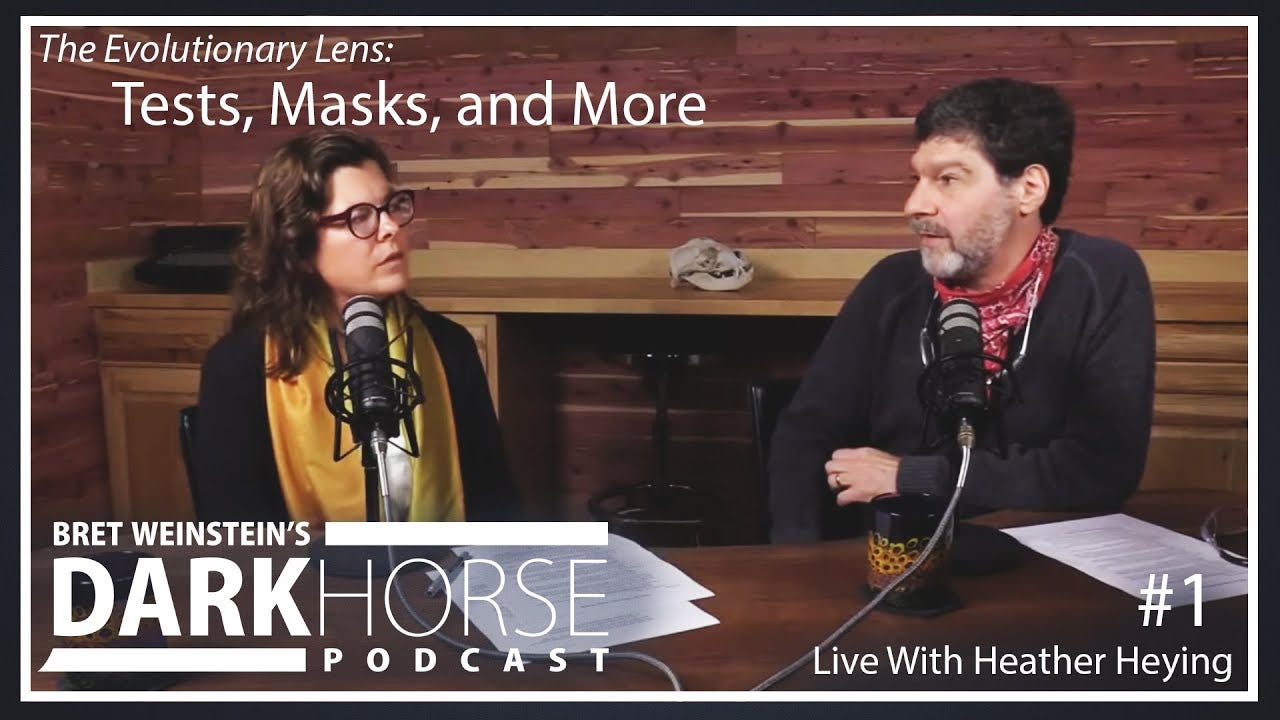While calculations are being performed on my other computer (may have to invest in a personal computational cluster soon), I thought I'd finish a list I started a few days ago. I'm going to assume nobody is going to sue me for advertising their logo here, but I'm happy to take any images down upon request.
Writing that title feels pretty icky, but if there is a silver lining to the pandemic, it's that it forces a person interested in the machinery of the world to look around and ask, "Where are the sane people?"
First, I'm working with a lot of great people, but for varying reasons, I will leave their names out because I know some of them don't want attention and others want to choose their moments. So, this is a short list of public people and places I've found to be among the best pandemic-era media in a rapidly evolving media world.
Remember: It is okay not to agree with everything in all places.
The Anonymous Resources
This is an edit to the original list because I have become so reliant on checking these sites that they become intuitive to the point of invisibility. The creators of these sites are among the greatest pandemic heroes in the world. The websites split into numerous resources as a kind of hierarchy of information that is vast. Go check them out so that I don't have to describe them.
[X]meta.com, where X includes many medical agents with varying efficacy in COVID-19 treatment.
COVEXIT is not a place to find several articles a day, but a place to find a high signal-to-noise ratio. The last interview there with Surya Arby discussed the VAERS/CDC data signal issue I wrote about the other day. I agree with Surya's points that the problem is not that the PRR is impossibly meaningless, but that we need more signals and it's the worst of the usual signal functions used in pharmacovigilance.
I don't know what the best link is here because biologists Bret Weinstein and Heather Heying are on a few platforms and I'm not certain if one of them is intended to be a primary home. They have been willing to wade into the SARS-CoV-2 story, early treatment medicine (and its suppression), and more recently vaccine controversies. Edit: I just discovered that Heather Heying is now writing at her substack entitled Natural Selections [so I subscribed].
TLAV (if I can go acronym) is what I would want investigative reporting to look like at major news outlets. Their existence indicts and shames mainstream media. If you haven't heard of them, yet, and want a place to spend a week reading to catch up on all the things you should have been informed about regarding serious geopolitical events, pandemic related or not, give TLAV a try.
Who still doesn't know about Medcram by now? Dr. Roger Seheult is, for numerous reasons, one of the pandemic's unsung heroes and must be on the short list of best physician educators to walk the planet. He was talking about zinc ionophores before it was cool. He is so helpful and balanced that YouTube backed off censoring him. Competence and integrity are powerful optics! He could have taken his audience off platform, and I hope that happens when the big online platforms splinter, as they will.
Since I'm on the topic of prolific medical educators, Dr. Mobeen Syed is often great. I have disagreed with him on a few data topics, but have learned enormous amounts from him.
Chris Martenson at Peak Prosperity
Sadly, I've watched Martenson the least of the bunch, probably because long hours have forced a shift toward content I can read---meaning consume more quickly. But when I go for a long walk, if my wife isn't with me, I still listen to some podcasts. Peak Prosperity is one on the very short list I search for, and I wish I'd found it sooner. In fact, I'd describe its mission as the closest thing I've seen to my own here at Rounding the Earth.
James Lyons Weiler of "Unbreaking Science"
I talked to "Jack" the other day for the first time without realizing I'd saved links to some of his articles. Jack was interviewing Dr. Peter McCullough about outpatient treatment of COVID-19 patients before it was cool.
With several articles a day, TrialSiteNews is one of the better daily sources of information about a lot of the topics I care about and write about.
My only frustration with FranceSoir is that I don't speak French and they run a lot of interviews. Otherwise, they'd done a great deal of investigative journalism with good analysis on corrupt trials and connecting dots that help us all understand some of the bigger picture. Having a programming director who is a mathematician and biochemist is handy during a pandemic.
(Edit) This is one of the most high volume resources I read. I have included scores of their articles in my research documents.
A few other good reads/listens:
Del Bigtree at The Highwire covers an array of pandemic-related topics. I watch less only because my time constraints have pushed me away from podcast/news viewing except where people in my research circle send me specific clips (meaning there is still only a 10-20% chance I watch). But I appreciate that he covers what the legacy media will not. I honestly cannot give a complete review since I've only viewed the most pertinent shows that have been pushed to me by friends.
Retired medical librarian Elizabeth Woodworth wrote a few good articles during the pandemic.
ZeroHedge has long had a reputation for bringing articles outside the scope of legacy news narratives. I don't agree with all of them, but am glad to have a stream that is closer to what I'd like a major newspaper to look like.
Dr. Rollergator, PhD should probably be our president. Election sabotage notwithstanding, I've found him to be the best scaly statistician I've worked with. He hasn't put much on his substack yet, but his first article is great. He is currently helping me piggy-back off of his analysis for my own risk-benefit analysis piece coming up soon.
No matter who you read or watch, do your best to make your own conclusions.
Lastly, I would like to mention that my best sources of information have been the several dozen relationships I have built with doctors, scientists, researchers and other motivated people while jointly learning everything we've been able to learn. In fact, as I "finish" this list, it occurs to me that I've talked with people from a lot of these sources. When you dig into a topic, don't be surprised when that happens. Expand your network of people of good faith so you can leverage everyone's learning time.
I'm absolutely certain I'm missing some great resources. Please share your favorites in the comments. Feel free to give examples where they've been ahead of the game, gotten something wrong, or whether they've self-corrected. These characteristics are important.














Great collection. My personal favorite: swprs.org , a Swiss group.
I find Dr. Suneel Dhand a good voice of reason on youtube:
https://www.youtube.com/channel/UCU-Jctu4JTEGFtVnsuqdd5Q